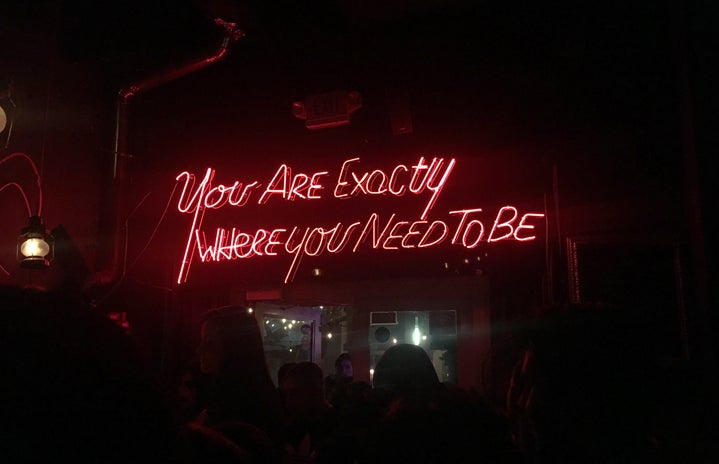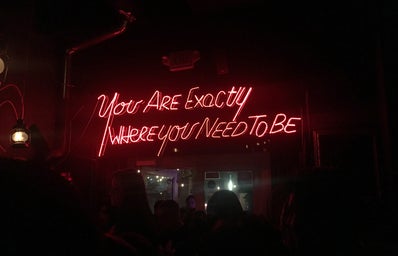I am not usually one for self-help books. Before reading The Defining Decade by Dr. Meg Jay, I had never read one before. All it took was an Instagram post of Sabrina Carpenter holding the book to get me on board. I am a sucker for celebrity ads. While I originally wanted to read the book before my 21st birthday, I was a month late. But 21 still seemed like a good time to read a book about being in your ‘20s. I already believed that my ‘20s would be important. I was the one who had things planned out for the rest of the decade. But, I was still interested to see what Jay would say about the decade that lay before me.
The book splits into three categories: work, love and the brain and body. Within each section, I found lessons that I found useful. Yes, they carried the same generalizations that I assume are common in self-help books. But, those generalizations and their applications to characters introduced in the book made me feel less alone. Every other twenty-something was struggling with the same life experiences that I was. Through The Defining Decade, I was able to relate to and start to develop traits that applied to my life now. They may also apply in the future.
The “work” section of the book consisted of five chapters. My favorite one was “Weak Ties.” This chapter was about what of the things most stressed to twenty-somethings – networking. Yet, the chapter used networking as a phrase very little. Throughout the section, Jay discusses how the close friendships we build for ourselves in our twenties can hinder our growth. I love my friends and do consider them family, but they won’t necessarily help me with getting a job in the future. That is why Jay suggests focusing on “weak ties” in our lives. The random people we went to high school with or the strangers we briefly spoke to at lunch and followed on Facebook could be the key to success in your ‘20s.
Jay’s networking description made it seem far more manageable than walking into a room full of professionals who felt more qualified than me. Instead, her suggestions consisted of emails, LinkedIn and Facebook messages that focused on small favors. Through these manageable forms, networking sounded less intimidating. As I look to getting a job after college, I will return to this chapter.
When I started The Defining Decade, I was most interested in reading what Jay would have to say about love. Maybe I found her points great because I already agreed with them, and I live to be right. While I sometimes felt crazy for having a timeline for relationships in my ‘20s, Jay confirmed that we should start thinking about our future marriages and relationships now. The Defining Decade talks about how many people suddenly feel like they should be married in their ‘30s, even if they aren’t serious about relationships in their ‘20s. I found this point to be important for twenty-somethings who see marriage in their future but don’t think that now is the time to focus on building those relationships.
There is a time and place for fun relationships and not taking things too seriously. However, I think it is also essential to consider what we want in the future and the timelines we imagine when making those decisions. This will keep people from waking up when their older and wondering where the time has gone.
The final part of life covered in The Defining Decade takes into account the mind and body. The section covers what many twenty-somethings dread: the future and failure. I tend to worry less about my future employment. Maybe it is because I am still years from when I plan on joining the workforce. Regardless, these chapters taught me important lessons that I can utilize now. I always thought that it was just my personality not to take criticism well. I outwardly smile and nod along when people negatively comment on my work. I promise to do better in the future. On the inside, I die. Negative comments from bosses and professors tend to put me in a bad mood for hours. I go from blaming them, to blaming myself, to going into overdrive to be better.
This is a common reaction amongst twentysomethings, according to Jay. It was comforting to know that other people feel these same insecurities upon receiving critiques from superiors. Jay stressed that rather than venting about these comments to friends and family, we need to learn how to calm ourselves down while we are young. This will build coping mechanisms and problem-solving skills as we are likely to receive some criticism and negativity throughout our lives. The critical thing to remember is that a negative response does not equal the end of the world, our jobs, or our future.
Overall, I do not feel like The Defining Decade offered any twenty-shattering ideas. I didn’t uncover new information. But, the generalizations pointed out in the book did make me feel understood. The book provided a chance to work through problems before they arise in my own life. I didn’t learn the secret to happiness from the book, but I did gain a sense of how to survive my ‘20s. I thank Jay for that insight and Sabrina Carpenter for the ad.


